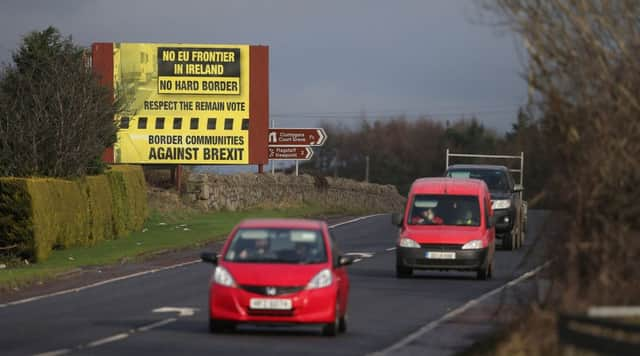Cross-border hospitality workers could be hit by Brexit, committee warned


Employees in Newry who live in the Republic could be particularly strongly hit by a hard Brexit, but five counties in Northern Ireland touch the frontier, the Northern Ireland Hotels Federation said.
Chief executive Janice Gault said uncertainty around the future is the biggest factor facing the industry.
Advertisement
Hide AdAdvertisement
Hide AdShe said: “We are actually on the frontier of a customs border.
“Do people become a commodity as such? Do you have to look at them and see them as a commodity?”
The Common Travel Area (CTA) has allowed people to pass freely between Ireland and Britain since 1922.
Ms Gault said reimposing controls would send out a retrograde message.
Advertisement
Hide AdAdvertisement
Hide AdShe said: “Five counties of Northern Ireland touch on the border and somewhere between 500 and 1,000 people cross it each day, mostly Irish nationals.”
That figure is based on an extrapolation from a small survey group and Ms Gault warned the real number could be different.
She suggested border checks could be carried out at Dun Laoghaire or Stranraer ports, drawing a parallel with a treaty allowing freedom of movement between some European countries.
That would allow freedom of movement throughout Ireland.
Ms Gault said: “It would be like Schengen in reverse, we would be a region of our own.”
Advertisement
Hide AdAdvertisement
Hide AdShe was giving evidence to the Northern Ireland Affairs Committee of MPs at Westminster, which is investigating the implications of Brexit for the border.
The British and Irish governments have said they do not want to see a frontier that disrupts business and travel.
Another witness to the committee, Paul Cullen, head of IT at the CIE bus tour company, said it would be the “default” position if nothing was done.
He said pre-registration of vehicles and number plate recognition technology could help avoid problems.
Advertisement
Hide AdAdvertisement
Hide Ad“It will involve creative thinking from customs and immigration.
“They have to get together, that is going to involve an element of trust which is maybe not something customs people are used to invoking.”